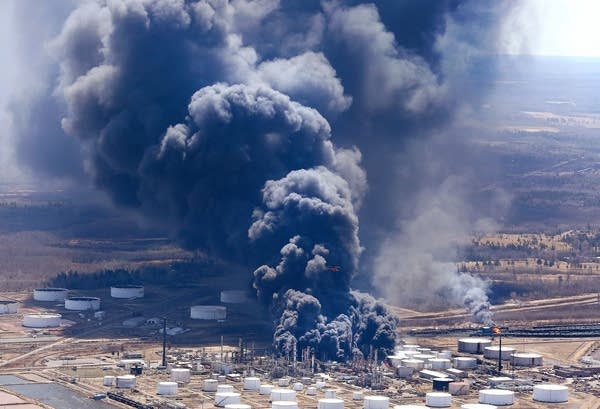Wisconsin's only oil refinery to reopen after 2018 explosion

The Husky Energy refinery burns as seen from the air over Superior, Wis, on April 26, 2018.
Bob King | Duluth News Tribune file
Go Deeper.
Create an account or log in to save stories.
Like this?
Thanks for liking this story! We have added it to a list of your favorite stories.


